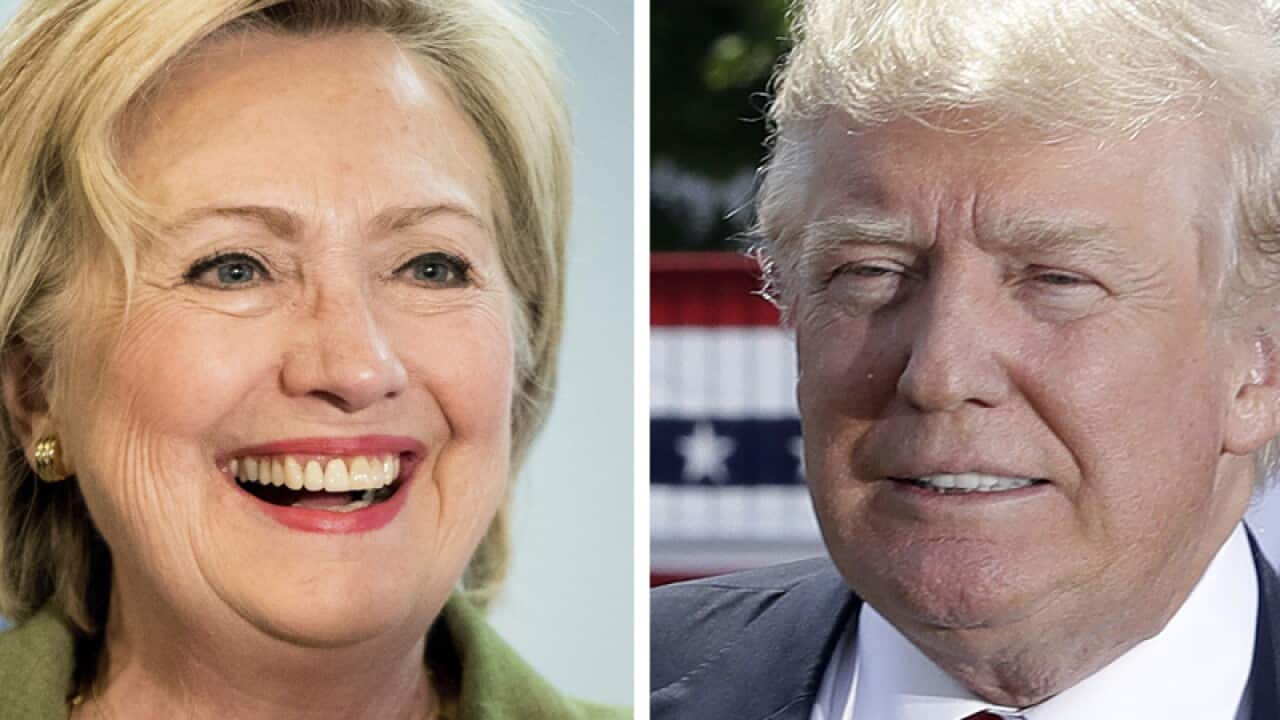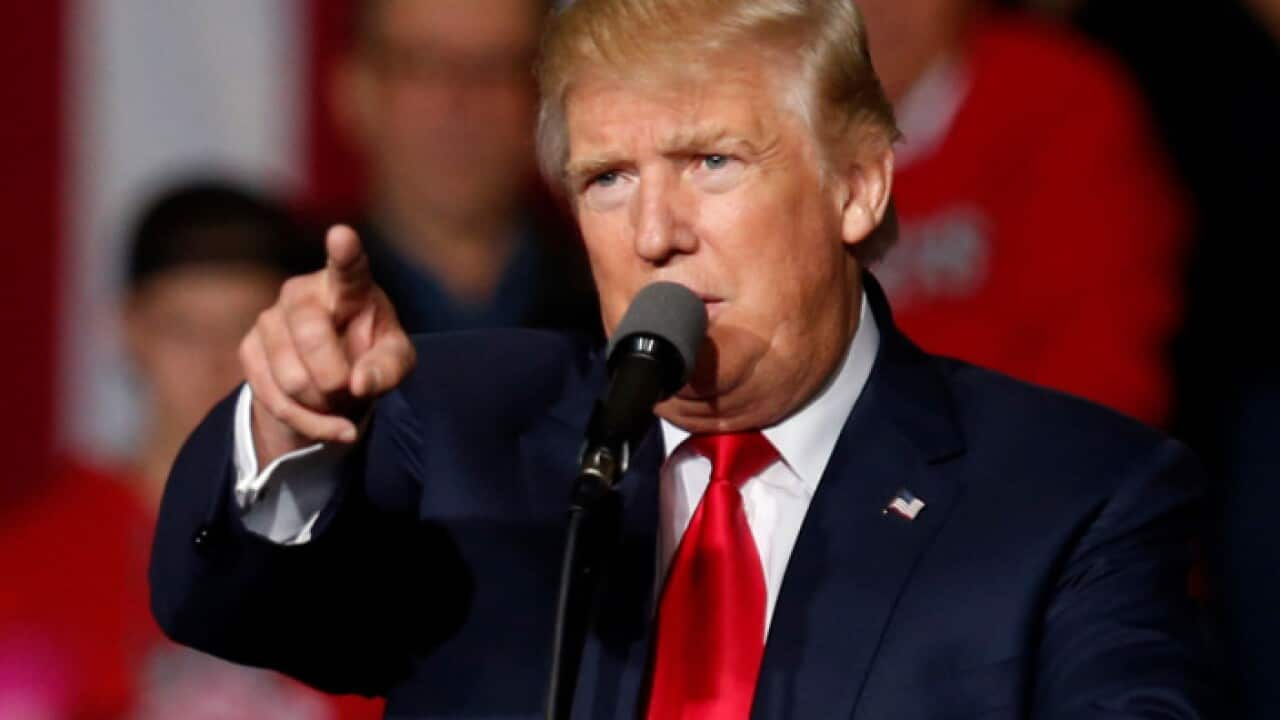There is widespread speculation that the FBI's new investigation linked to Hillary Clinton's private email account could hand Donald Trump the US presidency.
SBS News spoke to Dr Gorana Grgic, a US politics and foreign policy lecturer at the University of Sydney's US Studies Centre, about why these allegations have surfaced so close to the November 8 election and whether they will work against the Democratic presidential candidate.
Related reading

FBI 'obtains warrant for Clinton emails' as US polls narrow
Where has this new investigation come from?
"The news broke on Friday when the FBI director James Comey sent a letter to Congress saying there is an investigation going on which could be related to Hillary Clinton, so the prior investigation into her use of a private server and the emails that she has sent in her capacity as the Secretary of State, and that letter was pretty ambiguous in its content. It didn’t name exactly who was under the investigation.
'Hillary Clinton has gone pretty fast into damage control and crisis management.'
"Later on we would find out this had something that had to do with the sexual misconduct of the Congress Weiner who is the now estranged husband of Huma Abedin, Hillary Clinton’s very close personal aide. So basically on Friday immediately after that has been revealed Hillary Clinton has gone pretty fast into damage control and crisis management and gave out a statement at a press conference where she demanded that Director Comey to be more upfront with the details and come out with what have been the contents of the investigation.”
Has something this significant ever come up so close to a presidential election before?
"No, we haven’t had any October surprises that have been in form of a letter to the Congress and especially in such a politically charged and very politically polarised context. However, there have been plenty of other October surprises, if you wish, the sort of events that might have swayed the way that the political campaigns have been going just in their last weeks.
Related reading

Clinton on the attack after FBI's 'deeply troubling' actions
"But certainly this is a sort of precedent in which a lot of people are questioning whether Director Comey has been working to help a particular side of politics or whether he has really cornered himself by doing something that was completely a precedent when, in July this year, he came out and explained why the FBI wouldn’t be pressing charges against Hillary Clinton, because this is something which is quite out of the ordinary.
"If there is no further investigation or charges being laid against someone, it is quite unconventional that the FBI director would come out and explain why they aren’t doing so.”
Is that why there is such controversy, because it is so close to the public presidential vote?
"The voting has already started in some 33 states in the United States, either through postal votes or in person voting, so a lot of votes have been cast, so there is obviously a question over whether the voters have been informed completely.
"But also there is a question of whether this will sway voters towards a particular camp or whether it’s actually going to work as a kind of voting suppressant. Essentially where people are now again seeing headlines which contain Hillary Clinton, FBI and emails are yet again reminded of the secrecy, lack of transparency in part of Clinton’s campaign and whether maybe those independents - especially the youth that have been pretty disenchanted from the get go about her dealings in that respect - might not come out to vote on November 8 or in the coming days if they are in states that do have the early voting.”
There are fears this election might have as unexpected a result as the Brexit referendum in the UK. How likely is a surprise result in November?
"At the moment the way that the electoral college votes, the polls and predictions go, it’s still very much an uphill battle for Donald Trump. We’ve seen now some eight polls come out in the aftermath of Comey’s announcement. We still haven’t seen any significant sway or a switch towards the Trump camp.
'But also there is a question of whether this will sway voters towards a particular camp or whether it’s actually going to work as a kind of voting suppressant.'
"In terms of how much we can trust polls, we obviously have to be very critical of the polls. We have to be aware of who is conducting them, what are the methods, what are the samples and so on, but overall the averages from different polling companies and sources on both sides are still giving the lead to Hillary Clinton, so overall nationally she’s still ahead by some four to six percentage points. We’ll see if this narrows.
"Obviously the way that the electoral college votes is separate to the popular vote, but having said that, again, the path to victory for Donald Trump is much more complicated and it hinges on winning a lot of these big swing states where he still doesn’t have that support, it’s just not there. He has this problem with the kind of ceiling of around 40 per cent [being] the most he can get and that certainly isn’t enough to push him over the edge to get to 270 electoral college votes.”
Will people come out to vote or will the controversy keep them away?
"Democrats have been much better in organising the so-called ground game and getting people out to vote. One thing that we have to remember - and maybe from an Australia perspective something that we don’t really take into account - is that in the United States there has been kind of an historic trend, that has been maybe to an extent broken by President Obama in 2008, that basically around half the population that’s eligible to vote actually votes. Just in the latest two elections in 2008 and 2012 we had around 58 and 54 per cent of the voters actually voting.
"Having said that, it’s really important for both sides of the political spectrum to get as many people out as possible and those who are less successful in mobilising the voters are the ones that stand more to lose given that the turn-out is not that great.
"Certainly, there are a lot of fears now with the kind of looming crisis over this FBI investigation, that basically people who were sceptical and distrustful of Hillary Clinton might just get additional kind of evidence or at least a kind of confirmation of their initial suspicions and might stay at home. And what’s more, young voters are the ones that tend not to vote. Independents, if they are discouraged by the kind of nasty campaign that has been going on also tend to switch off, and these are the kind of votes that Hillary Clinton has been trying to get to.
"Even if Hillary Clinton wins, but if she wins with a smaller margin because of a lack of these voters, we might see the senate remain in Republican control. So if that happens, this is something that is going to make Hillary Clinton’s presidency all the more harder given that she will be operating basically within a divided government.”
What can we expect from the last week of the election campaign?
"I think that the Clinton campaign has been increasingly relying on the surrogates. So we’ve seen President Obama and the First Lady Michelle Obama really being out there and trying to engage with the voters, trying to mobilise the base, trying to bring in more voters. I think we are likely to see more of that. I think we are likely to see more Joe Biden more on the campaign, Senator Elizabeth Warren and the others, so I think what the Clinton campaign has been doing trying to make this closing argument by using people who are much more popular in terms of their public favourability than she is.
"On the other hand, I think that Donald Trump and his campaign will try to seize this moment and try to capitalise on the newly revealed FBI investigation and will try to spin this into what Republicans have been trying to do for the past year or so, to make the story of the emails into a bigger kind of story that acts as a kind of character test against Hillary Clinton.”













